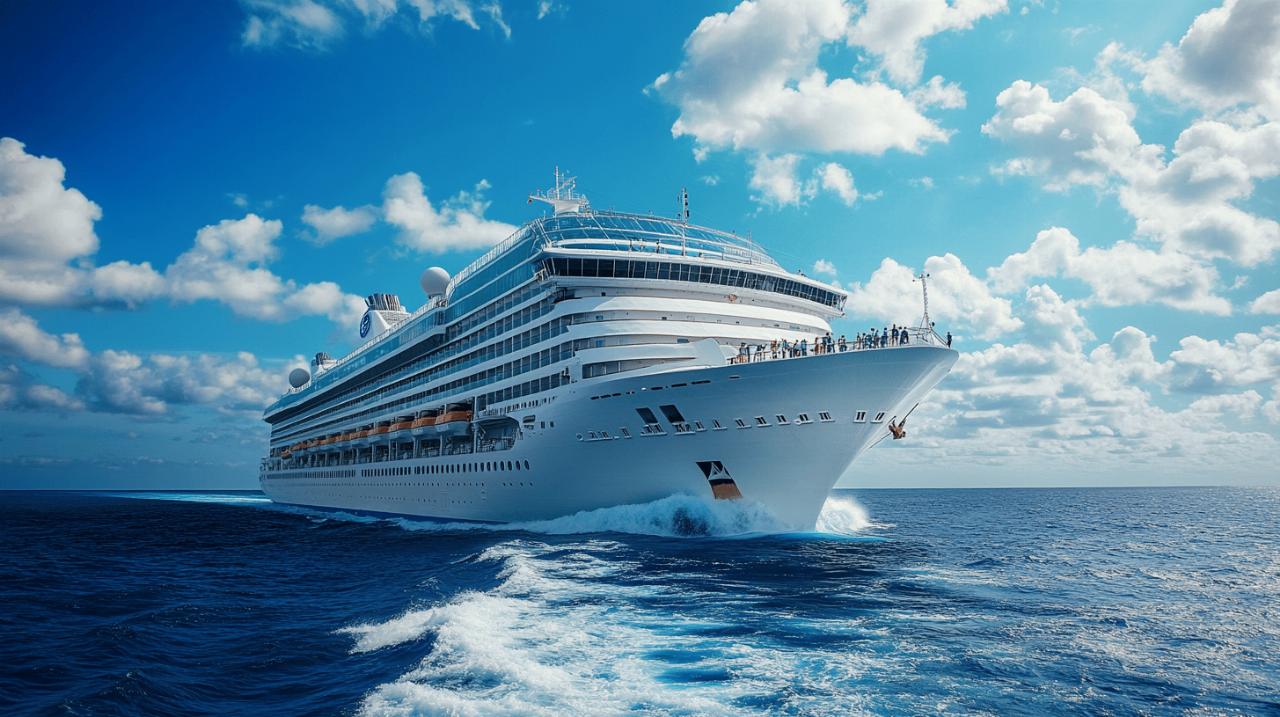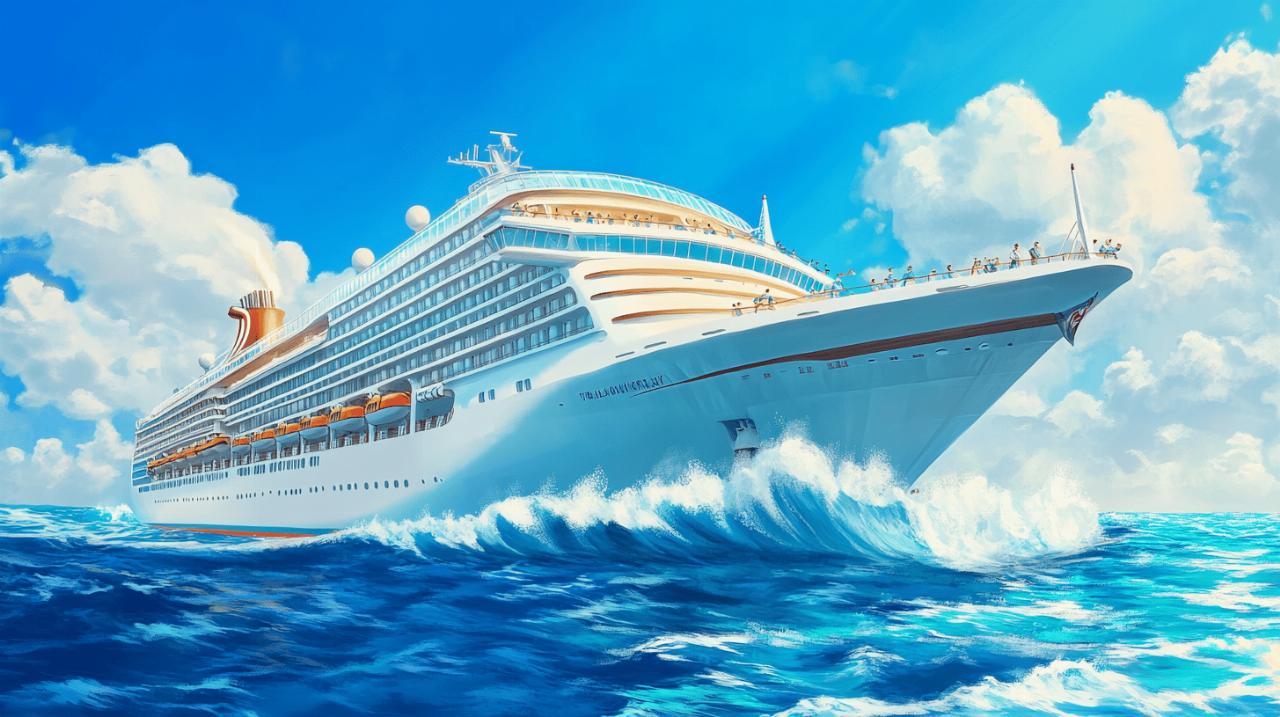Working on a cruise ship is more than just a job—it's an extraordinary lifestyle that combines employment with the opportunity to traverse the globe's waters. While the allure of visiting exotic destinations might be the initial draw, understanding the complete picture of shipboard life is essential before embarking on this unique career path. From navigating the hiring process to making the most of crew facilities, this comprehensive guide will help you chart your course toward a successful maritime career.
Understanding cruise ship career opportunities
The maritime industry offers a vast ocean of employment possibilities across various departments. Cruise ships operate like floating cities, requiring a diverse workforce to maintain operations and ensure passenger satisfaction. Whether you have a background in hospitality, entertainment, technical skills, or management, there's likely a position that matches your expertise.
Popular job roles and departments aboard cruise liners
Cruise ship employment spans numerous departments, each serving a specific function in the vessel's operation. The accommodation department manages passenger cabins and public areas, while food and beverage teams operate restaurants, bars, and room service. Entertainment staff organize activities and performances, and casino personnel manage onboard gambling facilities. For those with specialized skills, positions exist in fitness and beauty, IT, deck and engine operations, medical services, and retail shops. Children's services departments are crucial for family-oriented cruises, creating engaging programs for young passengers. Each role contributes to the seamless operation of these floating resorts and the delivery of exceptional guest experiences.
Required qualifications and essential skills for shipboard employment
Success in maritime careers demands a specific set of qualifications and personal attributes. At minimum, most cruise lines require employees to be at least 21 years old, possess relevant experience or qualifications for their position, hold a valid passport, maintain a clean criminal record, and demonstrate English language proficiency. Beyond these basic requirements, strong customer service abilities are essential regardless of whether your role involves direct guest interaction. Safety consciousness is non-negotiable—all crew members serve as first responders during emergencies. Excellent communication skills help navigate the multicultural environment onboard, while time management abilities enable you to balance demanding work schedules with personal time. All seafaring positions require completion of Standards of Training, Certification and Watchkeeping (STCW) Basic Safety Training and passing a seafarer's medical examination. Specialized roles such as deck officers, engineers, or chefs may require additional certifications and extensive training.
Finding and securing your dream cruise ship position
The journey to cruise ship employment begins with understanding where to look and how to position yourself as an ideal candidate. With fierce competition for positions, a strategic approach to job hunting and application preparation can significantly improve your chances of securing a contract.
Top resources and websites for cruise line job hunting
Major cruise lines like Carnival, Disney Cruises, Royal Caribbean, Princess Cruises, and MSC Cruises regularly post vacancies on their corporate career pages. These companies employ thousands of staff across their fleets, offering numerous entry points into the industry. Many cruise lines work with specialized maritime recruitment agencies to fill positions, making these agencies valuable resources for job seekers. These partnerships span the globe, with Princess Cruises alone working with recruitment networks in over 70 countries to find qualified candidates. Career fairs focused on hospitality and tourism often feature cruise line recruiters seeking promising talent. Maritime academies and hospitality schools frequently maintain job boards and alumni networks that connect graduates with seafarer opportunities. Industry-specific job websites aggregate listings from multiple cruise companies, providing a centralized location to browse available positions across the sector.
Crafting a standout application for competitive shipboard roles
Creating an application that captures attention requires research and personalization. Begin by thoroughly investigating the cruise line, understanding their brand values, destinations, and customer demographics. Tailor your CV to highlight relevant experience and transferable skills that align with the specific role. For hospitality positions, emphasize customer service excellence; for technical roles, showcase certifications and practical expertise. Your cover letter should demonstrate knowledge of the company and explain why shipboard employment suits your career goals. Prepare for a multi-stage interview process that may include video calls, telephone screenings, and face-to-face meetings. During interviews, showcase your adaptability and resilience, as these qualities are crucial for the demanding nature of cruise ship work. Remember that competition for cruise ship employment is fierce, with applications often outnumbering available positions by significant margins, so a polished, professional presentation is essential.
Life Below Deck: What to Expect as Cruise Ship Staff
 The reality of working aboard a cruise ship differs significantly from the passenger experience. Understanding the daily rhythms, living conditions, and hierarchical structure provides essential context for prospective crew members contemplating this career path.
The reality of working aboard a cruise ship differs significantly from the passenger experience. Understanding the daily rhythms, living conditions, and hierarchical structure provides essential context for prospective crew members contemplating this career path.
Living arrangements and daily routines for crew members
Accommodations for crew reflect a distinct hierarchy that influences both living conditions and privileges. The crew hierarchy typically consists of three tiers: Crew (including positions in laundry, food preparation, waiting tables, bartending, and cabin stewardship), Staff (encompassing photographers, gift shop attendants, spa therapists, and casino workers), and Officers (including bridge officers, engineers, front desk personnel, cruise staff, and performers). Your position within this structure determines your accommodation quality, dining options, and access to various ship areas. Most crew members share cabins with colleagues, with limited personal space compared to passenger staterooms. Princess Cruises, like many operators, provides furnished living quarters, meals, laundry services, and access to crew stores as part of the employment package. Work schedules are demanding, with sea days often involving 12-13 hour shifts without traditional days off. Instead of weekly rest days, crew members receive blocks of leave between contracts, which typically last six to nine months. This condensed work schedule allows for extended vacation periods between assignments, with many crew members enjoying two-month breaks before their next contract.
Navigating the unique challenges of working at sea
Maritime employment presents distinct challenges requiring adaptation and resilience. Financial considerations include maritime salary structures that may initially seem modest, with entry-level positions starting around £1,000 monthly. However, these figures can increase substantially with experience, reaching £2,040 to £3,675 for more senior roles. Salaries are typically paid in US dollars and may be adjusted based on your country of origin. UK residents should investigate the Seafarers' Earnings Deduction, which could significantly reduce taxable income. The multinational environment means working alongside colleagues from diverse backgrounds and cultures, with Princess Cruises alone employing staff from over 70 nations. This diversity creates a rich cultural exchange but requires strong communication skills and cultural sensitivity. Personal challenges include managing homesickness and maintaining relationships with family and friends during long absences. The confined living spaces and constant proximity to colleagues can test interpersonal skills, while the lack of privacy requires adjustment. Despite these challenges, many crew members find the lifestyle rewarding, with the opportunity to visit extraordinary destinations while developing professional skills in a unique environment.
Making the Most of Staff Perks and Leisure Facilities
While cruise ship employment demands hard work and dedication, it also offers unique advantages and recreational opportunities that can transform the experience from merely a job into an adventure. Understanding how to maximize these benefits enhances job satisfaction and helps create a sustainable work-life balance.
Exclusive crew areas and recreational opportunities
Cruise ships feature designated crew-only spaces that provide essential respite from passenger areas. The crew mess serves as both dining facility and social hub, offering meals adapted to various cultural preferences. Many vessels feature crew bars where staff can unwind after shifts, often with discounted beverages and entertainment options like karaoke or themed parties. Access to recreational facilities varies by position in the crew hierarchy, with officers typically enjoying more privileges than other staff members. Some ships provide crew-only gyms, swimming pools, and deck areas for relaxation away from guests. Movie nights, crew parties, and organized excursions foster camaraderie among the multinational workforce. Building relationships across departments can expand your onboard opportunities, as crew members often barter services, such as photographers exchanging professional photos for spa treatments. These informal networks enhance the quality of life aboard and create a sense of community despite the transient nature of the workforce.
Balancing work commitments with exploring ports of call
One of the most significant benefits of cruise ship employment is the opportunity for international travel, with itineraries spanning Asia, the Caribbean, Europe, and South America. However, maximizing these experiences requires strategic planning around work schedules. Time in port varies significantly depending on your role and departmental responsibilities. Some positions allow considerable shore leave, while others require remaining onboard to serve guests or maintain essential operations. Crew members in certain departments may have opportunities to serve as tour guides on passenger excursions, combining work with exploration. Forming friendships with colleagues who have visited ports previously helps identify must-see attractions that can be experienced within limited timeframes. Research destinations in advance to prioritize activities based on available time, creating efficient itineraries that maximize even brief port calls. While exploring independently offers freedom, joining organized crew excursions can provide cost savings and social opportunities. Remember that punctuality for ship departures is non-negotiable—vessels operate on strict schedules and will not delay sailing for late-returning crew. This reality underscores the importance of responsible time management when enjoying the remarkable privilege of visiting global destinations as part of your employment.







